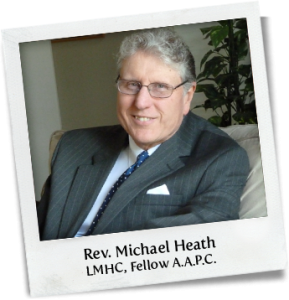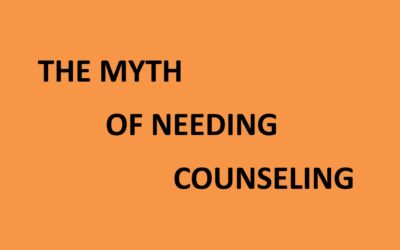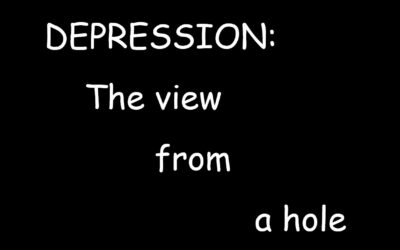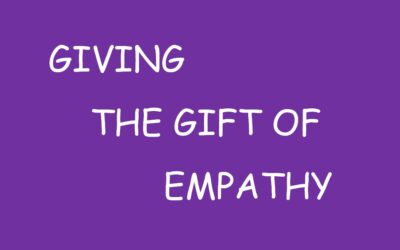Call or text (315) 380-1005 Rev. Heath Can Help!
For your convenience and popularity, all counseling is provided via Tele-therapy.
Hi! I am Michael Heath and this is the Pine Ridge Pastoral Counseling Web Page. Pine Ridge is a place for folks who are looking for the best mental health care but who are turned off by large clinics or impersonal facilities.
Since 1994, Pine Ridge has offered a distinctive and more personal alternative for mental health needs while providing a comprehensive range of psychological services to help individuals, couples and families deal with a wide range of emotional, relational, crisis related, life phase and spiritual problems.
Since I am both a state Licensed Psychotherapist and a nationally Certified Pastoral Counselor, I offer a comprehensive therapeutic approach which can relate to both the psychological and spiritual dimensions of life’s difficulties .
This web site is a great place to learn about my areas of expertise and to find answers to questions you may have concerning psychotherapy, marriage counseling, couples counseling, and other counseling related issues. If you can’t find what you’re looking for, please contact me and I’ll be glad to help.
Helping the people of Central New York since 1978 with:
- ANXIETY / DEPRESSION / OCD
- PTSD / SEXUAL ABUSE
- STRESS MANAGEMENT
- OBSESSIONS / COMPULSIONS
- LOSS AND GRIEVING
- SPIRITUAL CONFUSION / LOSS OF FAITH
- SHAME / GUILT / LOW SELF-ESTEEM
- POOR COUPLE COMMUNICATION
- ARGUMENTS / CONFLICT
- SEX / NO SEX
- PORNOGRAPHY / SEX ADDICTION
- BETRAYAL / INFIDELITY
- SEPARATION / DIVORCE
- MONEY / KIDS / INLAWS
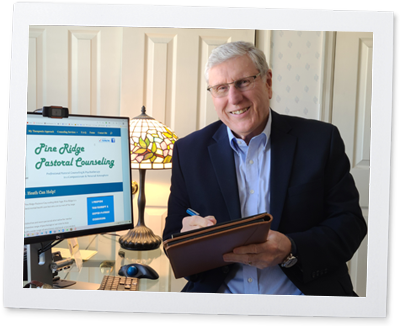
Latest Blog Articles
By Rev. Michael Heath
Psychology and Easter
Happy Easter, Everyone !
Having said that, I realize that Easter means different things to different people. As a child, Easter meant Easter Baskets and brightly colored eggs. For others, it’s a celebration of Nature and the return of Spring after a long and cold winter.
For many Christians, Easter is all about the miracle of Jesus’ resurrection from the dead after dying on the cross. It’s the cornerstone of Christianity’s belief in salvation and eternal life.
For some Christians, however, a literal interpretation of the story is a stumbling block. They believe in many of the teachings of Jesus but feel that the supernatural narrative simply defies science and logic.
In addition to supernaturalism, another the emphasis that conservative Christianity places on suffering and the necessary death of Christ creqtes a problem for many. The notion that humans are inherently evil and deserving of eternal damnation unless a blood sacrifice is offered for their redemption is incomprehensible and does not fit with the belief in a loving God.
Blessings for those who find meaning in the traditional story. But for those who see it as an obstacle to their faith, I suggest that a literal understanding is not the only way the Easter story can inspire or have meaning. So I offer these thoughts today.
Myth of Needing Counseling
This week marked the fourth anniversary of switching my counseling practice from in-person to tele-therapy. This change was due to the threat posed by the COVID-19 pandemic. Beyond changing the way counseling is delivered, COVID-19 affected mental health in a variety of ways.
Multiple studies agree that COVID raised anxiety and depression levels in America and around the world. COVID-19 pandemic triggers a 25% increase in the prevalence of anxiety and depression worldwide (who. int)
Much of the mental distress came from supply shortages and emergency measures instituted to protect public health. As a consequence, these changes resulted in the loss of jobs and increased social isolation.
While working and learning remotely from home was necessary, the isolation created unexpected emotional and relational problems. Getting help to deal with these issues is further complicated by persistent myths about mental health counseling:
Guilt: True and False
Over the past few years, healthcare professionals have consistently pointed to the lack of individual self-care as a serious mental health concern. Indeed, many Americans suffer from a self-care deficiency. Lack of self-care reduces our resiliency and ability to cope with stress and makes us vulnerable to increased anxiety and depression. In my practice, I find that the lack of self-care is directly related to a person's experience of personal shame and guilt. In other words, many folks feel that, because of this blight on their self-esteem, they are not deserving of or entitled to take care of themselves. Given this connection, it is important to clarify some of the common misconceptions concerning guilt and shame. Legitimate guilt The term guilt can be associated with a legal process. A defendant in a court of law is found guilty or not guilty of breaking the law. In that sense,...
V’Day for the rest of us.
It’s Valentine’s Day. Beyond the hearts and flowers, it’s important to understand that the day means different things to different people. For those intoxicated by infatuation, Valentine’s Day is a celebration of love and sexual passion. ( Actually, the thrills of infatuation are not love. They are sensations caused by dopamine, phenylethylamine and norepinephrine.)
Many relationships are more sober. The initial chemical rush has run its course and the blush of new love has calmed down. Their experience of Valentine’s Day can be different. Indeed, for many, Valentine’s Day can be awkward. Ironically, as the media raises expectations for romance, for a lot of folks, the flames of passion have died down or even gone out.
Fortunately, even though passion may have waned, it can be reignited. Valentine’s Day, then, can be an opportunity for couples to reflect on their love and talk about ways to add more sexual excitement to their relationship.
Unfortunately, many folks find talking about sex difficult, especially with their partner. To be clear, sexual communication is necessary to revive sexual interest and enjoyment. If your sexual communication needs some help, here are some tips: : Tips for Talking to your Partner about Sex | Pastoral Counseling Syracuse NY (revmichaelheath.com)
Trending:Throupling?
With Valentine’s Day fast approaching, I wondered what to write about for my blog. Over the past 18 years, I’ve written all kinds of articles about love, marriage and sex. With them, I’ve helped couples rekindle the flames of passion. A Valentine’s Day Primer for Couples who want more Romance in their Marriage. | Pastoral Counseling Syracuse NY (revmichaelheath.com)
This year I wanted to do something different and write about a relationship topic that was trending on social media. Surprisingly, one item jumped out. TikTok recorded 34.5 million views on something that I had never heard of before: throupling . What Is A Throuple? The Three-Way Relationship, Explained (womenshealthmag.com)
To be clear, despite the current flurry of social media attention, the actual number of throuples is small. Those who are represent only a tiny percentage of the total number of folks who are in committed relationships, 5%. Polyamory is More Common Than You Think – Public Health Post
If the number of throuples is so small, why is it getting so much attention ? My sense is that the image of a throuple taps into and expresses not only our curiosity for the unusual but also our forbidden erotic fantasies. While fantasies are okay, my concern is that couples understand the pitfalls of actually getting involved in this kind of relationship.
To be clear, throuples encounter some major psychological, logistical and even legal problems. So, if anyone is curious about this arrangement, here are some things to know:
The Depressive “Hole”
Everyone knows what it’s like to feel depressed. Indeed, we commonly associate depression with sadness and tears, but there is so much more to this painful condition. DEPRESSION | Pastoral Counseling Syracuse NY (revmichaelheath.com)
When bad things happen to us, it is normal to feel depressed for a while. With time, most folks adjust and things return to normal. Others, however, get stuck and things don’t improve. Clinical depression is a condition that does not just go away.
Depressed moods don’t improve, in part, because depression is not just about how we feel. It’s also about how we perceive.
Depression distorts the way we see ourselves and our outlook on the world. A restricted view blocks our ability to see resources and options and, thus, the situation can look worse than it is.
Although it’s difficult to approximate what a depressed person experiences, the analogy of being in a deep hole comes close. Among other things, being in a hole makes it impossible to see anything but the hole. How depression and anxiety disorders affect our perception of reality (telepsychhealth.com)
Thus, depression prevents us from having a panoramic perspective on our life. Worse, when we are in it, we don’t realize that our perspective is limited. Fortunately, there are ways to become aware.
If things haven’t felt right for more than a couple of weeks and you just can’t shake that feeling, here are some tips to help you know if you’re in a depressive hole and, if needed, how to get out of it:
New Year’s Resolutions
Okay, it’s the start of a new year and many folks are making New Year’s resolutions. Indeed there are lots of folks offering tips on how to succeed. Personally, I have written over 10 articles myself on this topic.
And yet, even with all this help, many are disappointed by their inability to keep their resolutions. Goal Setting Foundations – Arc of Monroe (arcmonroe.org)
The goals, like getting in shape, losing weight, eating healthier, not smoking or drinking less, are good things to strive for. The problem lies in the fact that making and sustaining significant change is complicated.
That said, it is still important to have self-improvement goals and not to give up. Today, I want us to look at the practice of making New Year’s resolutions historically. By doing so, we can gain both perspective on this ancient practice and some insight to help us achieve our goals.
Giving the Gift of Empathy
As Christmas fast approaches, some are still struggling with what gifts to give and how much to spend. While presents and festive wrappings are fun to get, there is one priceless gift that lasts a lifetime and doesn’t cost a cent: empathy.
At a time when tensions are high and conflicts seems to be everywhere, showing understanding and compassion is in great demand. Empathy and Compassion: Building a Stronger Support Community – (b-present.org) Here are some basic tips to help you spread the love of the season and lift the spirits of those you meet with an empathic encounter:
The Story of Mary & Martha
Some people believe that religion and psychology are fundamentally at odds with one another. While there are instances where science contradicts literal interpretations of certain events depicted in the Bible, there are also many stories found in scripture that reveal important psychological truths. https://revmichaelheath.com/reducing-stress-around-the-holidays-a-pastoral-counseling-approach/
Indeed, as a pastoral counselor, I find that using stories from the Bible is a helpful way to communicate psychological concepts. With that in mind, as we approach the holiday season, I want to tell you the story of Mary and Martha (Luke 10: 38-42). This beloved biblical classic has an important lesson for those who struggle with the stress that comes from family and social gatherings at this time of year. https://uihc.org/health-topics/coping-holiday-anxiety-and-stress
For more recent and past Mental Health postings, visit our Blog archive.
